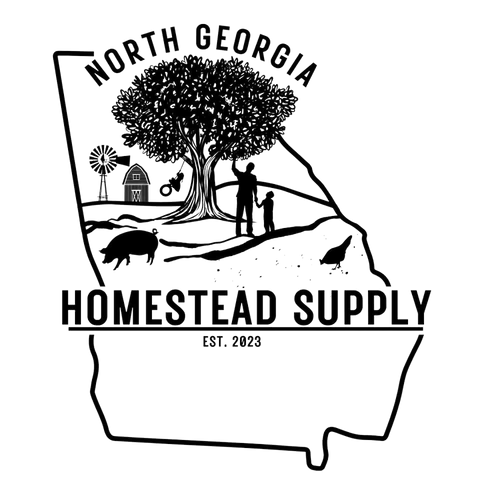Organic Feed vs. Conventional: What's the Difference?
1. Organic Feed vs. Conventional: What's the Difference?
To start with the basics: organic animal feeds, like the premium New Country Organics brand we stock, are produced without the use of synthetic pesticides, fertilizers, or genetically modified organisms (GMOs). Conventional feeds on the other hand can be from genetically altered crops and are often grown using a wide range of synthetic chemicals.
2. The Direct Advantages of Organic Feed for Livestock
- Enhanced Nutrient Density
Organic feeds offer a richer nutrient profile. They are typically denser in essential vitamins, minerals, and antioxidants. This is largely due to the soil health in organic farming which is richer, more balanced, and free of synthetic chemicals.
- Better Overall Health & Reduced Veterinary Expenses
Livestock that consume organic feed often have improved digestion, better immune responses, and fewer health complications. Over time, this can reduce the frequency of veterinary visits and associated costs, offering a long-term financial benefit for homesteaders.
3. The Indirect and Long-term Benefits of Organic Feed
- Soil Health
Organic farming practices prioritize the well-being of the soil. Healthy soil is a teeming ecosystem of its own, with a variety of microorganisms and organic matter that naturally enhances fertility. On the contrary, synthetic inputs from conventional farming can strip the soil of its natural vitality, making it dependent on chemical interventions.
- Water Quality
Runoff from conventional farms carrying pesticides and fertilizers contaminates water systems, affecting both aquatic life and humans. Organic farms substantially reduce this risk, contributing to cleaner rivers, lakes, and groundwater.
- Environmental Impact
Conventional GMO feed production often relies heavily on petroleum-based fertilizers and chemical pesticides. The extraction, production, and use of these resources come with a significant environmental cost, including greenhouse gas emissions and habitat destruction. Organic farming practices, by using natural means of pest control and soil enrichment, significantly reduce these environmental footprints.
4. Why Does Organic Feed Cost More? The Hidden Truths.
It's undeniable that organic feeds, at face value, can be pricier than their conventional counterparts. Here's why:
- Labor-Intensive Farming Practices
Organic farming requires more manual labor, from weeding to using natural pest control methods. This can increase production costs.
- No Shortcuts with Synthetic Inputs
Since organic farms don’t use cheap chemical fertilizers and pesticides, they might have lower yields, driving up the per-unit cost of their produce.
- Hidden Subsidies
It's essential to realize that the "lower" prices of conventional feeds are somewhat misleading. Conventional GMO grain farming often receives large government subsidies, which indirectly come out of taxpayers' pockets.
5. Supporting Local and Making an Impact
By choosing to feed your livestock organic products like the New Country Organics products we carry, you're not only making a statement about the quality of food and care you prioritize for your animals. You are also casting a vote in favor of sustainable practices, environmental health, and the well-being of our shared planet.
For our neighbors in Cumming, Dawsonville, Canton, Ball Ground, and Jasper: North Georgia Homestead Supply is your one-stop destination for top-notch organic feeds, and a variety of other homesteading supplies. Our store, located in Marble Hill, GA, welcomes you with a team that's passionate about homesteading and eager to assist.


